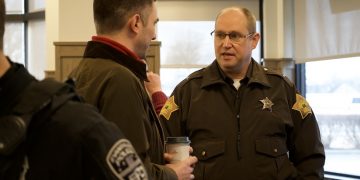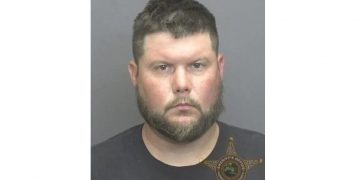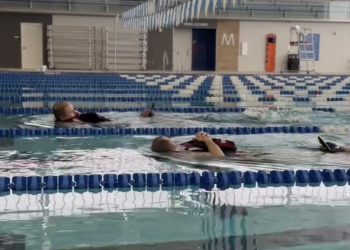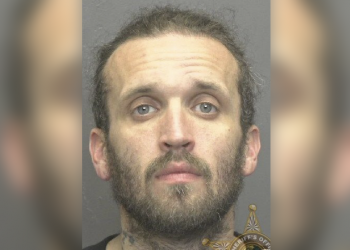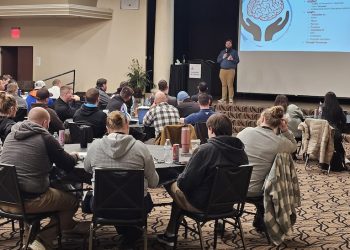Indianapolis, Indiana – Kimber Blackwell is using her personal experience to raise awareness of rare blood illnesses throughout the month of March, which is Bleeding Disorder Awareness Month.
In the Indiana Hemophilia and Thrombosis Center, Blackwell serves in the capacity of a physician assistant. After years of working in the medical field, Blackwell was eventually given a diagnosis with Von Willebrand disease (VWD).
About one percent of people are affected by von Willebrand disease, which is a bleeding ailment. It is also capable of causing severe menstrual bleeding in women, as well as nosebleeds and persistent bleeding after an injury or surgery.
Even though Blackwell has the mildest type of VWD, those with the most severe form of the disease are unable to produce any clotting protein at all.
As Blackwell explains, “Those bleeding symptoms can be much more severe. They have bleeding in their joints from just walking around. They can have bleeding from their gastrointestinal tract that happens without warning or a procedure, and can have more severe bleeding symptoms.”
In Indiana, there are over 60,000 people who live with a bleeding disease; yet, the majority of these people are unaware that they have the condition. According to the CDC, it takes an average of 16 years for a diagnosis to be made after the first signs of VWD appear in a woman who has the disease.
Blackwell claims that she didn’t start looking for a diagnosis of VWD until she noticed that her symptoms were identical to those of the people she was treating for the condition.
“I never had anything that was overwhelming fatigue, but I did notice that I would wake up in the middle of the night when I was on my period and have to change protection in the middle of the night or sleep in a towel. That was when I realized that I am working harder at this than anybody else is. Maybe this is an actual illness,” she says.
Blackwell is now an advocate in Washington, D.C., where she is trying to get lawmakers in Indiana to become more aware of the need to raise funding for bleeding disorder research and improve access to care.
She urges anyone who is having symptoms similar to hers to seek medical assistance and stresses the significance of getting an early diagnosis and receiving appropriate treatment.





















